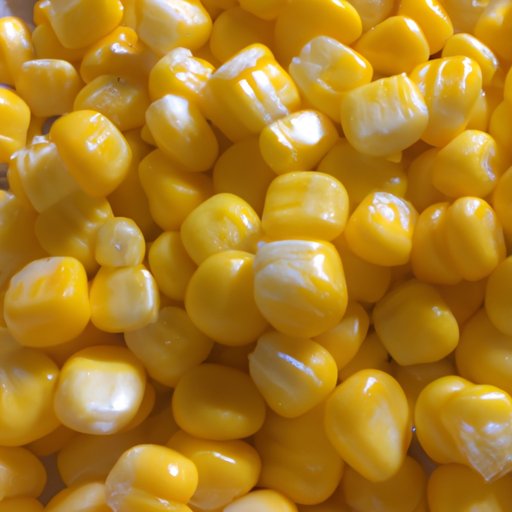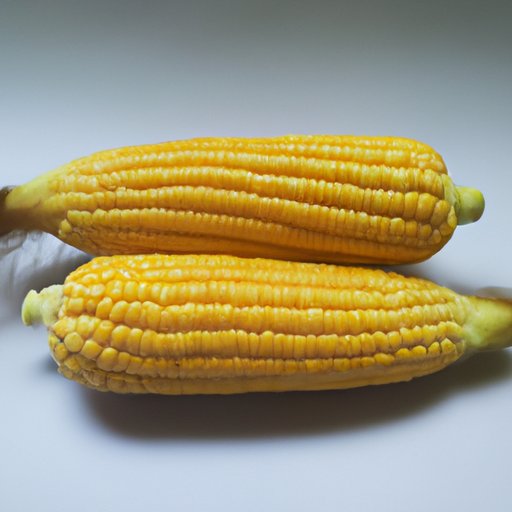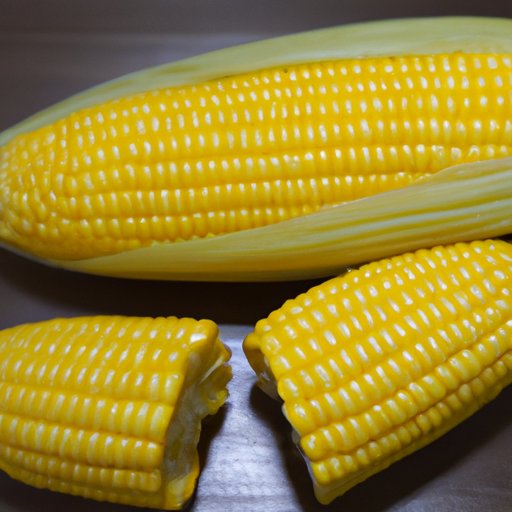Introduction
Corn is one of the most widely consumed grains in the world, with a history stretching back thousands of years. It’s a versatile and nutrient-rich food that can be used in a variety of dishes, from soups and stews to salads and casseroles. But what makes corn so healthy? In this article, we’ll explore the nutritional benefits of corn and how it can benefit your overall health.

Exploring the Nutritional Benefits of Corn
Corn is an excellent source of essential vitamins and minerals, including vitamin A, B vitamins, magnesium, phosphorus, and zinc. It also contains dietary fiber, which helps support healthy digestion and regularity. Corn is naturally low in fat, sodium, and cholesterol, making it a great choice for those looking to maintain a healthy weight.
Health Benefits
In addition to its nutritional content, corn offers a range of health benefits. Eating corn can help improve digestion, boost heart health, and support weight loss. Let’s take a closer look at the potential health benefits of corn.
Improving Digestion
The dietary fiber found in corn helps to keep the digestive system running smoothly. Studies have shown that adding more fiber to the diet can help reduce symptoms of irritable bowel syndrome (IBS), as well as other gastrointestinal disorders. Fiber also helps to regulate blood sugar levels and can help prevent constipation.
Boosting Heart Health
Corn is a good source of magnesium, which is essential for keeping the heart healthy. Magnesium helps to relax the arteries and reduce blood pressure, which can lower the risk of heart attack and stroke. Eating corn can also help reduce cholesterol levels, which is important for maintaining cardiovascular health.
Supporting Weight Loss
Eating corn can help you lose weight and maintain a healthy weight. The dietary fiber found in corn helps to keep you feeling full for longer, which can reduce hunger cravings. Additionally, the complex carbohydrates in corn provide sustained energy throughout the day, helping to prevent overeating.
Making Corn a Healthy Part of Your Diet
If you want to add more corn to your diet, there are several ways to do so. You can use canned or frozen corn in salads, soups, and side dishes. You can also roast fresh corn on the cob and add it to tacos or burritos. For a sweet treat, try making your own popcorn using air-popped kernels. There are countless recipes featuring corn, so you’re sure to find one that suits your tastes.

The Surprising Health Benefits of Corn
In addition to its digestive and heart-healthy benefits, corn offers a range of other health benefits. Eating corn can help improve cognitive function, reduce the risk of diabetes, and even protect against certain types of cancer. Let’s take a closer look at some of these surprising health benefits.
Enhancing Cognitive Function
Corn is a good source of thiamin, which is essential for brain health. Studies have shown that thiamin helps to improve memory, focus, and concentration. Eating corn can also help reduce age-related cognitive decline, making it a great food for seniors.
Lowering Risk of Diabetes
The dietary fiber in corn helps to slow the absorption of sugar in the body, making it a great food for people with diabetes. Studies have also shown that eating corn can help reduce the risk of developing type 2 diabetes. This is due, in part, to the high levels of antioxidants found in corn, which can help protect against chronic diseases.

A Guide to Using Corn for Optimal Health
To get the most out of corn, it’s important to choose the right type. Fresh corn is the best option, as it has the highest levels of nutrients. If you’re using canned or frozen corn, look for varieties that are low in sodium and free of added sugars. It’s also important to store corn properly to ensure maximum freshness. Finally, it’s best to avoid processed corn products, such as chips and cereals, as they tend to be high in fat, salt, and sugar.
Conclusion
Corn is an incredibly versatile and nutritious food that can be used in a variety of dishes. Eating corn can offer a range of health benefits, from improving digestion to lowering the risk of diabetes. With its high levels of essential vitamins and minerals, corn can be a great addition to any diet. By choosing the right type of corn and storing it properly, you can enjoy all the health benefits that corn has to offer.
(Note: Is this article not meeting your expectations? Do you have knowledge or insights to share? Unlock new opportunities and expand your reach by joining our authors team. Click Registration to join us and share your expertise with our readers.)
